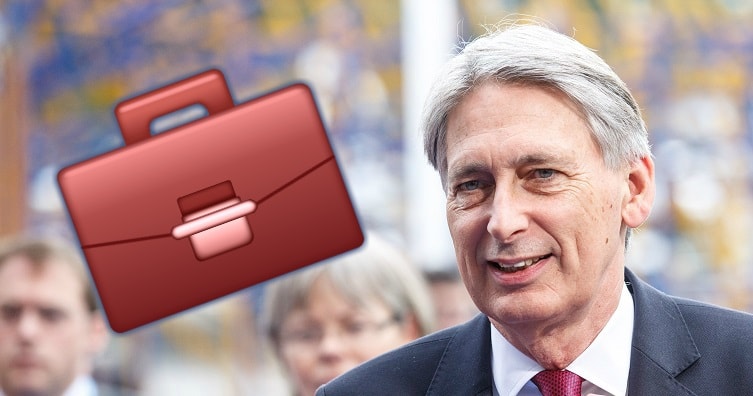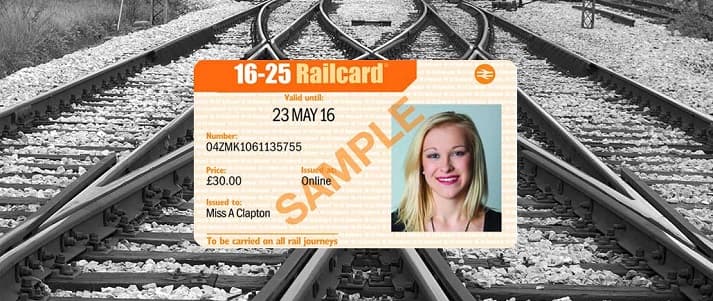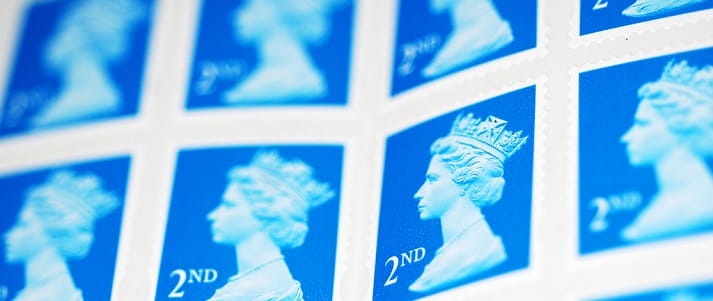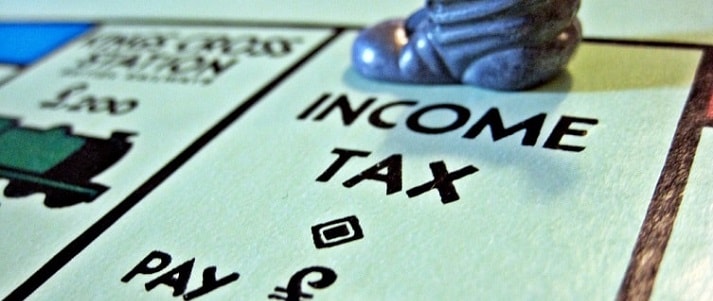Budget 2017 explained: government tries to woo young voters
The government's announced a whole host of changes with the aim of winning back young voters, but what do the proposals really mean?
 Original image credit: EU2017EE Estonian Presidency - Flickr
Original image credit: EU2017EE Estonian Presidency - Flickr
The chancellor, Philip Hammond, has announced the 2017 budget, with many of the plans aiming to secure the votes of young people.
If you're thinking "hey, didn't we have a budget a few months ago?", you're bang right. Usually the budget is announced in the spring, with a statement given in autumn to update the public on the nation's finances.
For whatever reason, the Hamster decided to switch the two around, meaning the budget now takes place in the autumn, and the statement in the spring.
Anyway, enough with the formalities – let's find out how you're going to be affected by the budget!
What's in the budget for you?
Changes to the student loan system
The amendments to the student loan system were, for the most part, less of an announcement, and more just a confirmation of what we already expected to happen. Here are the three key changes that are coming your way.
Freezing tuition fees for a year at £9,250

Back in October, Theresa May announced her intention to freeze tuition fees for a year. This means that the current cap (£9,250) will remain in place until September 2019, rather than increase in September 2018 as the government had originally planned.
It's unclear whether or not fees will rise again in September 2019 (and whether any increase will be larger, to make up for freezing it in 2018).
Is this good news?
Well, it's certainly better than what the government had originally intended – to increase the maximum fee by around £250 every year until 2020.
However, it's the fact that the move is designed to win back the support of young voters that leaves a bitter taste in the mouth. Students fiercely protested lifting the cap to £9,000 just a few years ago, and the subsequent increases have been far from popular.
To freeze the cap at a level far above what most students would deem fair, and to do so as a way to try and curry favour with young people, is surely unlikely to prove as popular as the government would have liked.
Raising the repayment threshold to £25,000 a year

When announcing her plans to freeze tuition fees for a year, Theresa May also took the opportunity to outline her plans to increase the repayment threshold for student loans.
Currently the threshold sits at £21,000 a year, meaning you repay 9% of however much you earn over the threshold. In other words, if you earned £24,000, you'd pay 9% of £3,000.
Philip Hammond has today confirmed that as of April 2018, the repayment threshold will rise to £25,000 a year.
Is this good news?
For a while now we've been arguing that the repayment threshold should be higher than £21,000 – partly because when the new fees were brought in, the government themselves said that the figure would rise with average earnings.
They later did a u-turn and froze it at £21,000, meaning that as inflation continued (and £21,000 was gradually worth less and less), graduates were effectively starting their repayments on a lower wage.
Raising the threshold to £25,000 is a welcome (if not hugely overdue) development, but it yet again highlights how the government can – and will – play fast and loose with the terms of your student loan agreement.
Fixing the student loan over-repayment issue

Philip Hammond's also agreed to fix the issue that's led to thousands of graduates over-repaying their student loans by up to £10,000 a year.
The problem stems from the fact that HMRC doesn't feel the Student Loans Company's "outdated" computer systems can handle the volume of data required for more accurate loan repayments, so whether or not the government will invest in new technology, or simply insist that they crack on with their current systems, remains to be seen.
Is this good news?
This issue was only affecting graduates who had already repaid their loans, and while you're unlikely to even get close to repaying yours in full, it's nice to know that you won't be stumping up even more cash if you manage to clear your £50k+ debt.
Increase in Minimum and Living Wages

The National Minimum Wage is to rise for young people. The increase is slightly different depending on your age, so here's the full breakdown:
- 16 and 17 year olds – up from £4.05 an hour to £4.20 (+3.7%)
- 18–20 year olds – up from £5.60 an hour to £5.90 (+5.4%)
- 21–24 year olds – up from £7.05 an hour to £7.38 (+4.7%)
The National Living Wage – essentially the minimum wage for workers aged 25 and over – is also set to rise, from £7.50 an hour to £7.83 (+4.4%)
Is this good news?
Any increase in pay for the lowest earners is better than nothing, but critics believe that it's still well short of what's required.
The Living Wage Foundation has set the Real Living Wage at £8.75 an hour, and in London it's £10.20. Although students also have a maintenance loan to fund their living costs, graduates on the National Living/Minimum Wage are likely to struggle.
A new 26–30 railcard

Travelling by train can cost (almost literally) a million pounds, but fortunately for anyone aged 16–25, buying a railcard can cut a third off the price a journey.
One of the big talking points of this budget has been the announcement of a new 26–30 railcard, meaning you'll now be able to enjoy cut-price train journeys for another five years.
Is this good news?
If we here at Save the Student love anything, it's a discount, and a third off anything isn't to be sniffed at. However, once again its downfall is that it's one of the flagship policies designed to steal the hearts of young voters.
Anyone aged 26–30 who frequently travels by train is likely to be commuting to work, but alas, railcards aren't usually valid during peak times. The best way to save on regular train travel is to buy a season ticket, but guess what? Railcards can't be used with those either.
As such, the reaction to the announcement has been, let's say, lukewarm...
I want guaranteed working hours, proper employment contracts and a minimum wage that covers everything from council tax to heating to a pint after an awful shift. I don't want a railcard that isn't even valid on commuter fares #Budget2017
— Kate Flood (@KateFlood) November 21, 2017
Guys, if we take the savings we can get from this new mid-20s railcard, and combine them with all the money we're not spending on sandwiches or avocado brunches, we'll totally be able to afford a house!
— Matthew Evans (@vasteyematt) November 21, 2017
Housing reforms
Speaking of affording a home, the government has also made a few key announcements on housing.
300,000 new homes to be built each year

Philip Hammond has promised to invest £44 billion to increase the number of new houses being built, upping the figure to 300,000 a year. No details have been given regarding how much of this will be affordable or social housing.
Is this good news?
You've no doubt heard on the news that Britain is in a 'housing crisis', and that we need to increase the number of new homes being built in order to satisfy the demand. What's more, if there are more houses on the market, the cost of each house should be lower, as they'll be at less of a premium.
So, you'd think that this announcement is exactly what the doctor ordered, right? Not really.
Sajid Javid, one of Philip Hammond's colleagues in the cabinet, had reportedly demanded £50 billion for housing schemes. At more than 10% below the apparent necessary cost, it remains to be seen whether the chancellor's pledge will be enough for the task at hand.
It's also worth emphasising that the government hasn't said how many of the new homes will be classed as affordable or social housing. For young people looking to make it on to the property ladder, the number of new homes being built is irrelevant if they can't afford any of them to start with.
No stamp duty for first-time buyers
 Credit: Philippa Willitts - Flickr
Credit: Philippa Willitts - Flickr
Stamp duty, a tax that you pay when buying a house, is to be cut for first-time buyers purchasing a property that costs £300,000 or less. For properties that cost between £300,001–500,000, you'll only pay stamp duty on the extra £200,000.
This initiative aims to reduce the overall cost of buying a house.
Is this good news?
The reaction from experts to the cut in stamp duty has been mixed. While many people have commended the chancellor for trying to ease the financial strain on first-time buyers, some have questioned just how much of a difference it will actually make.
It's estimated that for anyone outside of the South or East of England, scrapping stamp duty for first-time buyers will only shave about £1,000 off the cost of purchasing a home. In London, although the average stamp duty is £11,000, it's small change compared to the average deposit (around £90,000).
In fact, if you bought a house for the full £300,000, the stamp duty would only have cost you £5,000 in the first place. It's more than a drop in the ocean – but not much more.
Others have even gone as far as suggesting that a cut in stamp duty won't make any difference at all. The theory goes that if sellers know that buyers no longer have to spend x amount of money on stamp duty, they'll simply add that figure to the price of the house itself.
Sadly, none of us can predict the future, so we'll just have to wait and see on this one.
Extending the Help to Buy scheme

The Help to Buy scheme has three main strands: the ISA, Shared Ownership and the Equity Loan. All three aim to make it easier for people to buy their first home, and although there's a lot to understand, here's a (very) quick summary of each initiative:
- Help to Buy ISA – pays you a 25% bonus on your savings, to put towards a deposit
- Shared Ownership – allows you to buy a share of a home, and pay rent on the remaining share
- Equity Loan – the government lends you up to 20% of the cost of a newly built home, meaning you only need a 5% deposit and 75% mortgage to make up the rest of the cost.
Theresa May had previously promised to invest £10 billion to extend the scheme, and Philip Hammond has today approved this spending.
Is this good news?
The success of the Help to Buy scheme really depends on where you live (or, more importantly, where you're going to live). According to the BBC, in the first three years of the scheme, a third of newly built houses outside of London were bought using the Equity Loan.
However, in London it's been a lot less popular, where just 10% of newly built homes were bought with the Equity Loan. Others have also claimed that the initiative has only served to increase demand and raise the price of new builds in particular.
In summary, nobody can quite make their mind up over whether or not the scheme has been a good thing, so it's down to interpretation whether extending it without reform is good news!
Other important announcements
The government also announced a few other measures that will no doubt impact on students, albeit a little more indirectly.
Tax-free personal allowance increased to £11,850
 Credit: Images Money - Flickr
Credit: Images Money - Flickr
If you're eligible to pay tax, you're also eligible for a tax-free allowance. Currently this figure stands at £11,500, meaning you only pay income tax on any amount over this.
This year's budget has seen that figure rise to £11,850.
Is this good news?
Definitely! Although most students are unlikely to earn a five-figure salary while at university, every little helps. It's also great news for graduates, many of whom will be relatively low-earners after leaving uni.
Increased tax on 'white ciders'

The government has identified so-called 'white ciders' as a key factor in people developing drinking problems. As such, they've decided to raise the duty (tax) on these drinks.
Duty rates on beer, cider, wine and spirits will all be frozen.
Is this good news?
For students (or anyone else) who enjoy white ciders in moderation, this is a bit of a blow – getting smashed is now going to feel a little more like smashing the piggy bank. However, we can probably all agree that if the duty rise is successful in at least partly solving problem drinking, it's a good thing.
Fortunately, with the freeze in duty on beer, cider, wine and spirits, you can still enjoy your other favourite drinks just as much as you do already.
Incoming plastic tax?

Philip Hammond had been expected to announce a tax on single-use plastics (such as polystyrene) in his budget.
He stopped just short of this, instead promising to investigate introducing such a measure.
Is this good news?
Assuming that a plastic tax does come into effect at some point, it'll probably be bad news for anyone who enjoys takeaways. Foods like kebabs often come in polystyrene boxes, and if the material is taxed, there's every chance that your local takeaway will start charging more to make up the costs.
But this tax isn't a money-making exercise (or at least, that's not what it's advertised as). It's intended to discourage manufacturers from using single-use plastics, as these materials are difficult (or even impossible) to recycle.
If the plastic tax helps prevent any more whales ending up like the one on Blue Planet 2, and does the rest of the environment some good too, we're all for it!
But it wasn't all cold, hard numbers...
Just to really drive home how they're actually normal people like you and me, Philip Hammond and Theresa May engaged in some definitely-not-scripted and totally funny banter, poking fun at the prime minister's infamous speech at the Conservative Party conference last month...








